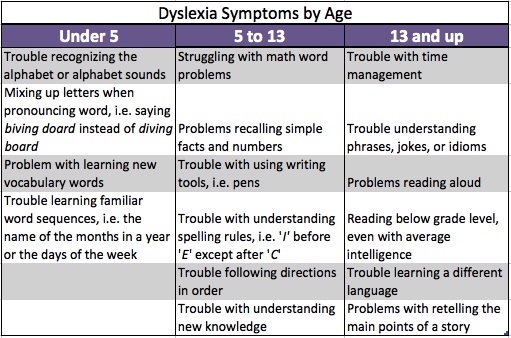Dyslexia, in the medical terms, is an auditory-to-verbal learning disability that effects the language processing centers of the brain. A person having dyslexia has difficulty associating spoken sounds with written letters. Learning disabilities like this usually come to the surface during childhood and remain throughout one’s life.
If you have a dyslexic person as a child, it can be difficult to determine whether he or she will be able to function normally throughout their life. There are several symptoms of dyslexia that should be alert for, though.
One particular difficulty with dyslexics is spelling. A child with dyslexia may find it extremely difficult to spell words and phrases that he or she hears and reads. Even though they have been exposed to the alphabet and the sounds of letters and numbers, they cannot decipher the meaning of the words and phrases that they are learning. This is why it is vital that they learn how to spell well as early as possible.
Another symptom that people with dyslexia may have is having trouble remembering names. This is a common problem for dyslexics. A dyslexic child may forget the name of a friend or family member when reminded of him or her.
Another very common symptom of dyslexics is difficulty remembering dates and times. The dyslexic person cannot remember their date of birth, work day, or even the time when it is noon.
Dyslexics also often have trouble remembering what they eat for lunch. It is also very difficult for them to remember what to do for dinner. Some people even forget how much water they need to drink each day. Dyslexics who find it difficult to remember these things tend to consume too much to meet their daily needs.

They also have problems with vision, hearing and smell. Dyslexic children often find it difficult to read, recognize colors, and can be very slow to recognize patterns in prints. It can be extremely difficult for a dyslexic child to understand jokes or understand the meaning of letters and words.
Other signs of dyslexia may include slow learning, low self-esteem or poor performance in school, shyness, and learning difficulties. It is important to keep a close eye on children with dyslexic tendencies as they are likely to have difficulty reading and spelling at school, as well as their relationships at home. Dyslexic children may even have friendship problems, making social interaction difficult.
There are different dyslexia symptoms that you may notice in your child. Most kids will find that they have difficulties in recognizing sounds, they will struggle to hear letters and will find it hard to learn new words and phrases. They will also struggle to remember new items and understand the meaning of new ones.
It is not impossible to teach dyslexic children to read. There are many methods that can be used in teaching dyslexics to read. Some methods are based on traditional methods of teaching phonics. phonics means the teaching of sounds and words by spelling them. Other methods are more involved than that.
For example, a dyslexic child who has difficulty reading will be able to learn a few letters and then use their hands to form words by pressing the letters. or letter sounds. This method is called phonics but it has many limitations. This method is also not as effective as a more involved phonics training. That is why it is so important for parents to help a child with dyslexia be able to recognize sounds and understand the meaning of the letter or word before they can work on spelling them out.
If you notice dyslexics struggling with a variety of skills like school performance, learning to spell words or reading and understanding language, you may want to consider having them evaluated by an expert. The evaluation can help the parent to figure out if there is a larger problem at hand or if they just need some practice reading.
